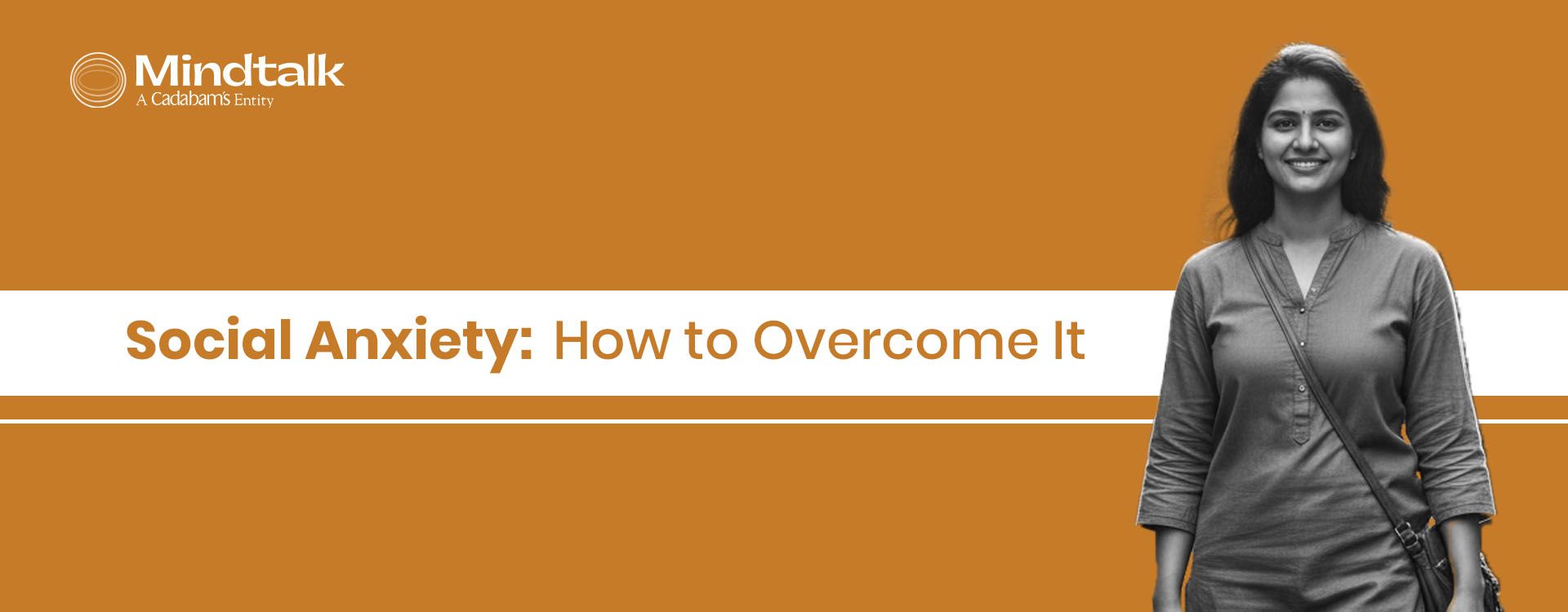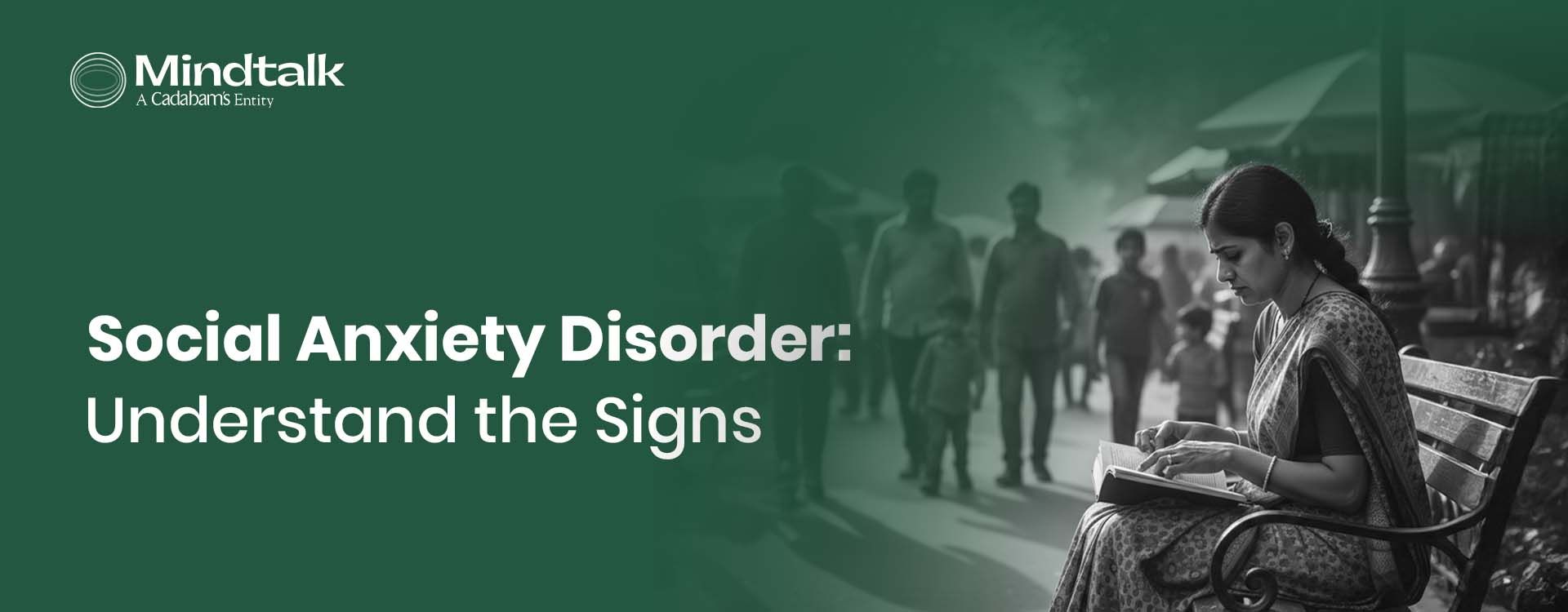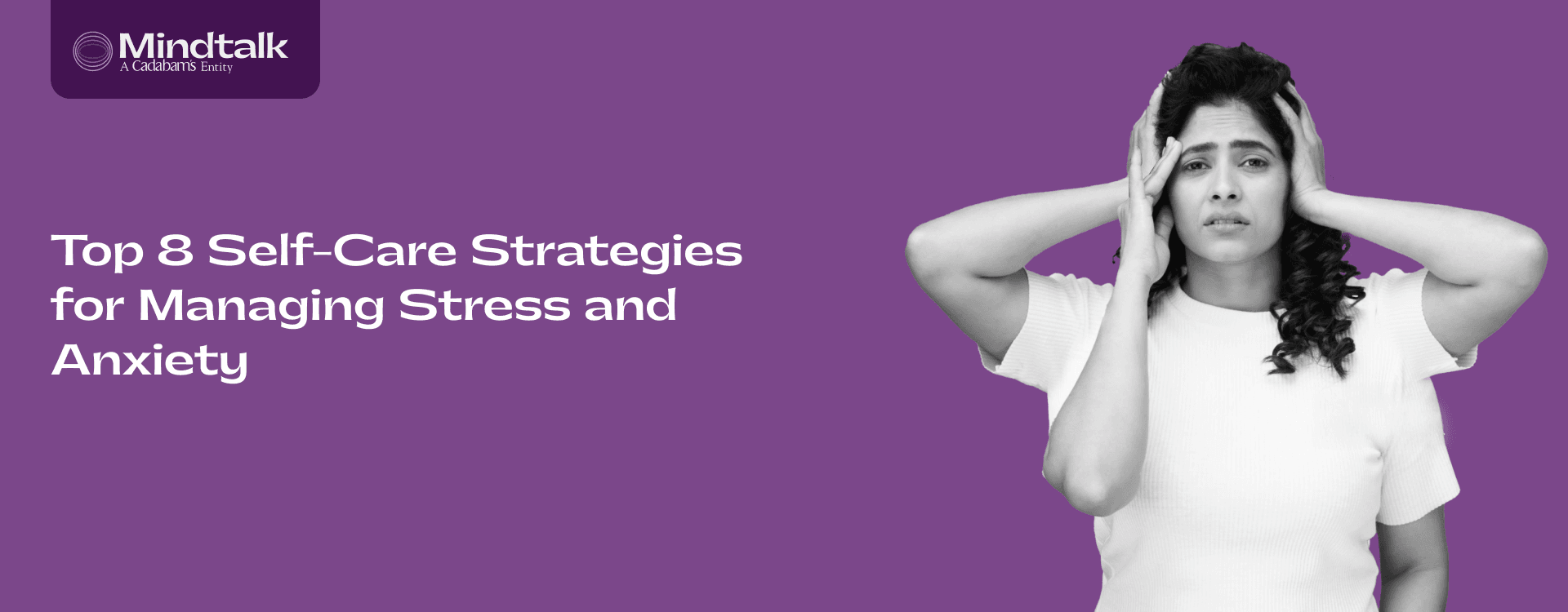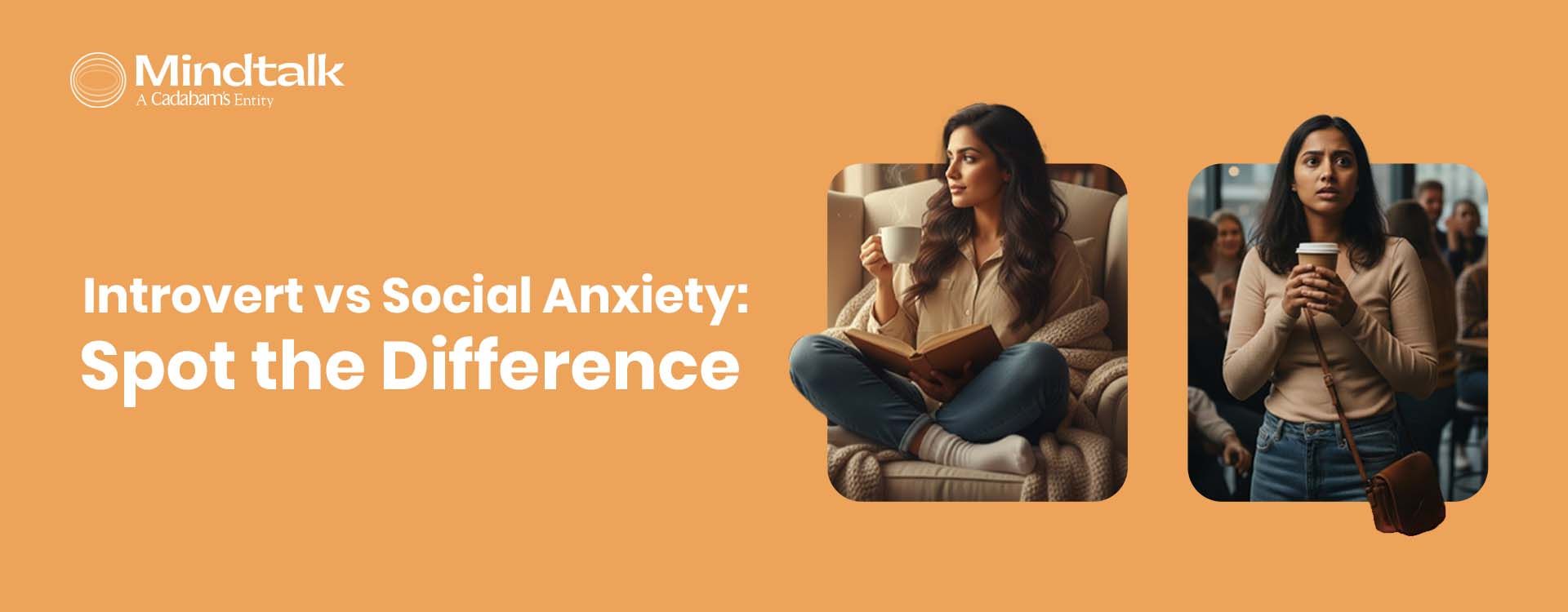Introvert vs. Social Anxiety: Identify, Understand, and Manage
Introversion and social anxiety are sometimes mistaken or used interchangeably, although they are not the same.
Being conscious of these distinctions allows people to better regulate their own experiences and build meaningful connections.
In contrast to social anxiety, which is mainly about the fear of being criticised or shamed, an introverted personality thrives in a quiet, low-stimulus environment.
In this blog we will explore differences, similarities, and management techniques between Introvert and Social Anxiety.
Understanding the subtle lines between introvert and social anxiety helps prevent mislabelling and creates space for empathy and growth.
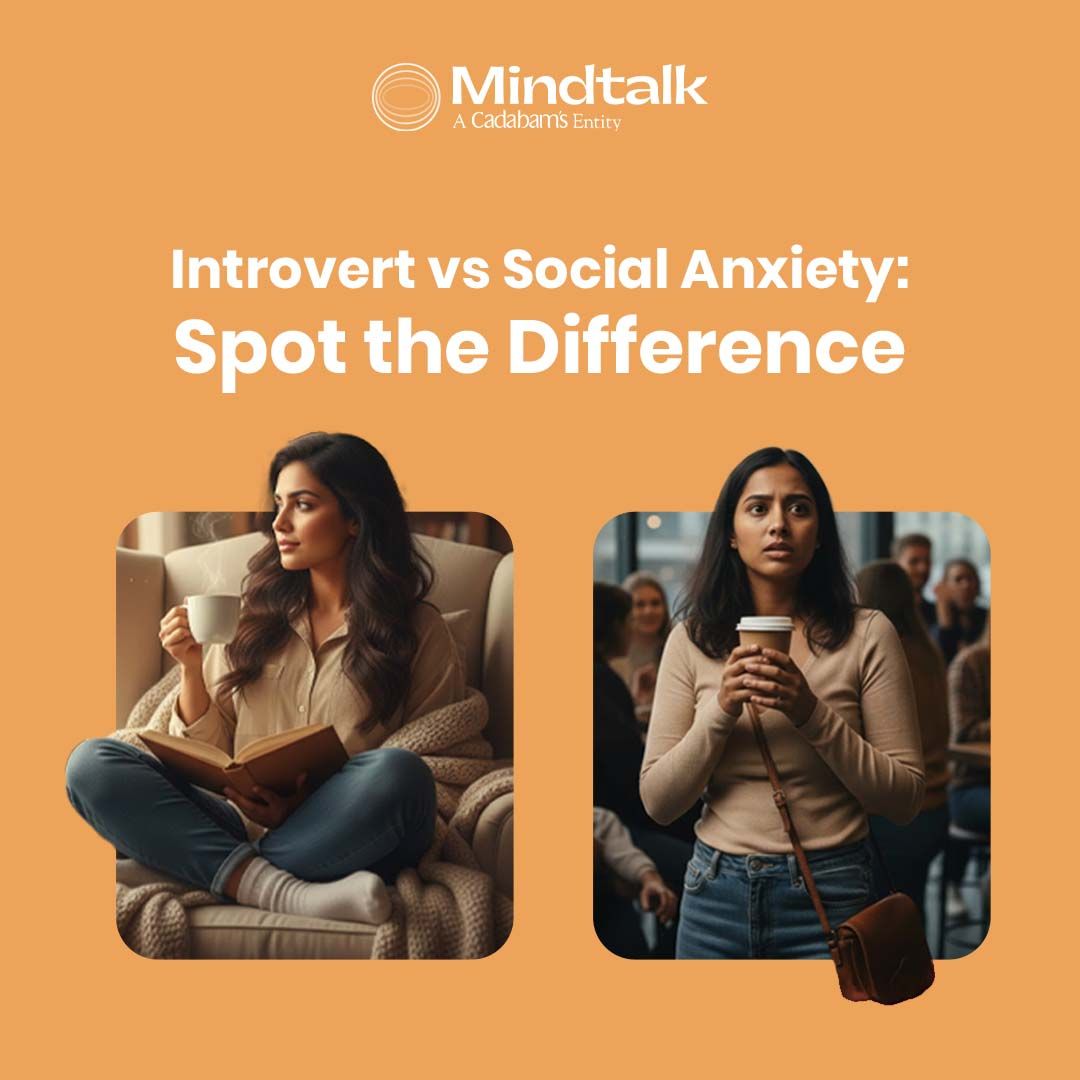
What Is Introversion?
Introversion is a personality attribute where individuals tend to seek seclusion, and less outside stimulation is the best for them. Introverts often get charged up through silent engagements, and they do enjoy in-depth conversations over loud social events.
It is neither a weakness nor shyness but just another way of interacting with the world. The global sample for MBTI reports that about 56.8% of the world's population identifies themselves as introverts. This doesn’t mean they suffer from anxiety, but many people confuse introversion with introvert social anxiety.
What Is Social Anxiety?
Social anxiety is a severe fear of social situations. The primary source of the anxiety is the worry of being judged, criticised, or embarrassed. It's far more than just shyness or being quiet; it is a mental health condition that can really disrupt one's daily life by avoiding social situations and living in isolation.
Social anxiety disorder occurs in a vast number of individuals, with up to 5% to 10% of the world affected by it. It is, in fact the third most common psychiatric disorder after substance use disorders and depression. Although introverts may enjoy solitude, introvert and social anxiety often involves avoidance driven by fear rather than preference.
What's the Difference between Shyness & Social Anxiety?
Shyness is a personality characteristic wherein one may feel uncomfortable or hesitant in social settings, but one learns to cope over time. Social anxiety, on the other hand, is an intense and debilitating fear that cannot be simply equated with shyness; it requires treatment to manage it. This difference becomes more visible when comparing cases of introvert and anxiety, which often coexist but do not always indicate the same experience.
Key Differences Between Introversion and Social Anxiety
The need for solitude characterises introversion, while the fear of being judged by others in social interactions is social anxiety. Introverts gain energy from alone time, while socially anxious individuals want to connect but are afraid to because of discomfort and fear.
These distinctions need to be known in order to understand the individual's needs. Recognising these signs helps differentiate between someone who is simply introverted and someone dealing with introvert social anxiety.
Nature and Origin
Introversion is a natural personality trait rooted in how individuals process stimulation. Social anxiety, however, stems from environmental, genetic, and psychological factors. While introverts are naturally drawn to quieter settings, socially anxious people may avoid situations out of fear, even if they desire interaction.
In some cases, introvert and anxiety coexist, making it difficult to identify what needs attention first. Understanding where these behaviours come from—whether temperament or trauma—can shape how we interact with others, whether by respecting boundaries or offering encouragement that supports mental health without pushing discomfort.
Behavioural Manifestations
An introvert may turn down a party invitation to read a good book or to watch their favourite comfort show, while the socially anxious person will avoid the event due to the fear of judgment. The behaviours are the same, but the reasons are different- preference compared to fear.
Recognising this subtle difference allows for better understanding and prevents incorrect assumptions about a person’s intentions. This is especially important when trying to spot introvert and social anxiety from the outside.
Emotional Experiences
Introverts feel comfortable and are satisfied with being alone, while those struggling with social anxiety feel loneliness, frustration, and distress because they avoid social environments and, consequently, create a vicious cycle of fear and isolation.
This emotional contrast influences self-esteem, coping strategies, and even long-term mental health outcomes, making it vital to approach each experience with care, sensitivity, and an open mind to offer the right kind of support and encouragement when needed. This emotional complexity often defines the experience of introvert and anxiety together.
Overlapping Characteristics
Introverts and socially anxious people may share some common behaviours, such as avoiding large groups. However, the reasons are different; introverts are seeking comfort, while socially anxious people are trying to avoid perceived threats.
This overlap can make it hard to distinguish between the two, but looking deeper into intent can offer useful clarity-—especially in those experiencing introvert and social anxiety simultaneously.
Social Withdrawal
Both may avoid crowded gatherings, but introverts require time to recharge. For the socially anxious, it is an avoidance of the fear of shame or judgement, which has many emotional effects. This fear often stems from past negative experiences or self-critical thoughts.
Over time, constant withdrawal can contribute to increased anxiety, feelings of rejection, and emotional exhaustion. Unlike introverts, who feel restored by solitude, socially anxious individuals may feel conflicted—wanting interaction but feeling paralysed by fear of negative evaluation. This inner conflict often defines introvert social anxiety.
Preference for Solitude
Introverts are comfortable with solitude and enjoy reading or writing. The socially anxious individual may also seek solitude but often feel torn between the desire for connection and the fear of social interaction. While introverts thrive in their own company and find peace in quiet activities, socially anxious individuals may isolate themselves as a way to avoid perceived threats or discomfort.
This solitude is often filled with inner conflict, as they long for companionship yet fear rejection, criticism, or making mistakes in social situations—another hallmark of introvert and anxiety.\
Can Introversion and Social Anxiety Affect Each Other?
Social anxiety can further intensify introversion. Since introverts already tend to avoid social interactions, social anxiety could make them more reclusive and thus harder to distinguish from a person struggling with social anxiety. This overlap can cause confusion in diagnosis and support. However, proper awareness and management through therapy or coping strategies can overcome such challenges.
Can I Be Both an Introvert and Socially Anxious?
It is possible to have both qualities. An introverted and socially nervous person may experience anxiety in social situations while simultaneously needing alone time to refuel. Understanding and treating both components can improve overall well-being.
Recognising this dual challenge is important, as it allows for better coping strategies, emotional balance, and healthier social functioning over time through tailored support and therapeutic guidance.
Identifying Your Experience: Self-Assessment
It might be easier to determine if you are socially nervous, introverted, or both by thinking back on your experiences. The first step in determining your individual requirements is to acknowledge your emotional and physical reactions to social circumstances. This is especially useful if you’re trying to understand whether you’re dealing with introvert and social anxiety, or simply introversion.
Reflecting on Social Interactions
Think about how you feel after social events. Do you feel drained or fearful? Introverts may feel tired but content, while socially anxious individuals might replay interactions with self-criticism.
Regularly noticing these reactions can improve your self-awareness and help you make informed decisions about the types of social settings that support your mental and emotional health-—especially if you are navigating introvert and anxiety together..
Recognising Physical and Emotional Responses
Notice your body's reactions and signs such as sweating, racing heart, or fear in social situations often points to social anxiety. Introverts, however, may feel calm but uninterested.
Tracking these physical and emotional cues over time can help you differentiate between social anxiety and introversion, allowing for better self-management and seeking the right kind of support if needed.
Where Does Shyness Fit In?
Shyness falls between introversion and social anxiety. Shy people may feel uncomfortable in social situations but learn to cope with time. Social anxiety, however, typically interferes with everyday life and often needs professional interventions.
While shyness is a personality trait, social anxiety is a mental health condition. Recognising the differences between the two can guide individuals in choosing the right support system, whether it’s self-help, social practice, or clinical treatment. This is especially relevant when introvert and anxiety create overlapping or confusing patterns.
Treatment Options for Social Anxiety in Introverts
Social anxiety treatment requires a combination of therapies, mindfulness, and medication in some cases. Specific techniques can be used to help introverts with social anxiety manage social interactions while respecting their comfort level. By tailoring strategies to their personality traits, treatment becomes more sustainable and effective for long-term mental health progress.
Cognitive Behavioural Techniques
CBT aids in the identification of negative thought patterns and challenging them so individuals can interact confidently with others without anxiety. It helps reshape internal dialogue, making social cues feel less threatening.
For introverts, CBT offers structured, practical methods to boost confidence, improve communication skills, and reduce the urge to avoid interactions in both personal and professional settings.
Gradual Exposure to Social Situations
Gradual exposure involves step-by-step exposure to feared social situations, gradually helping to desensitise the anxiety and make one comfortable with it. Introverts benefit from this gentle approach as it allows them to build confidence without being overwhelmed.
Over time, the repeated exposure helps reduce fear, making social events, public speaking, and everyday conversations less intimidating and more manageable—especially for those with introvert social anxiety.
Mindfulness and Relaxation Practices
Mindfulness and deep breathing practices can soothe the mind and make social interactions more comfortable and less frightening. These techniques calm the nervous system and reduce racing thoughts.
Introverts often find mindfulness helpful in navigating overstimulating environments, as it enhances emotional regulation, focus, and inner calm, enabling them to engage socially without feeling mentally drained or panicked.
Acceptance and Commitment Therapy (ACT)
ACT focuses on accepting difficult emotions and committing to values-driven actions, helping individuals build resilience against social anxiety. It teaches people to stop avoiding fear and instead take purposeful actions despite it.
For introverts, ACT encourages meaningful engagement aligned with personal values, allowing them to pursue goals while accepting the presence of anxiety without judgment.
Social Anxiety Medication
In severe cases, medication such as Selective Serotonin Reuptake Inhibitors (SSRIs) can be prescribed to alleviate symptoms, often in conjunction with therapy. These medications balance brain chemicals linked to anxiety, improving mood and social function. When paired with therapy, they can offer introverts a more stable emotional base, making it easier to apply coping strategies in daily life.
Ways to Manage Your Social Anxiety as an Introvert
You may better control your social anxiety as an introvert by preparing yourself in a few ways. You can handle social situations with more comfort and confidence if you use these techniques to make you feel more relaxed and in control. Some of them are:
- Choose Events That Feel Right: Attend gatherings aligned with your interests.
- Stick with Familiar Faces: Stay close to supportive friends or family.
- Arrive Early or Stay Late: Engage when the environment is quieter.
- Eat Before Going Out: Ensure you’re energised and comfortable.
- Stay Hydrated: Keep yourself physically at ease.
Seeking Professional Help
Seeking professional help is crucial in managing all the challenges associated with the condition. Therapists or psychologists can provide guidance and effective strategies to address these challenges and improve overall wellness. They tailor interventions to individual needs, helping people gain clarity, reduce avoidance behaviours, and build confidence in handling social situations more effectively.
When to Consult a Therapist
It is expected to experience social anxiety little, but if it is interfering with your daily functioning and impairing relationships, it is high time to consult with mental health professionals like therapists for specialised care and support. Timely help can ease symptoms, build coping skills, and prevent long-term effects on your personal and professional life.
Therapy Options and Support Groups
Therapies such as CBT, ACT, and group counselling can provide a step-by-step way out of these challenges. Support groups offer a comfortable environment where people can share their experiences and learn from others with similar problems.
Together, these methods create a well-rounded support system that helps people feel heard, validated, and equipped with practical tools to face real-world situations. Group sessions can also be encouraging for introverts who benefit from learning through shared stories and structured interaction.
Mental Health Professional For Anxiety
Empower Your Social Life with Mindtalk's Help
Our team of mental health professionals at Cadabam’s Mindtalk have experience in treating individuals with social anxiety. Our treatment modules include evidence-based therapies, mindfulness practice, medication management and support groups, which are empathetic and personalised, aligning with each individual unique experience.
Each session is provided in a non-judgemental and supportive space, empowering individuals to express their thoughts comfortably. If you're seeking solutions for emotional and mental well-being, Mindtalk’s expert therapists are here to help. Our platform offers comprehensive mental health services, including counselling, therapy, and psychiatric care, provided by specialised experts.
With a focus on evidence-based and holistic approaches, we support your path to personal growth and healing. Reach out to us today to book a therapy session. Call us at +91 73534 00999.
